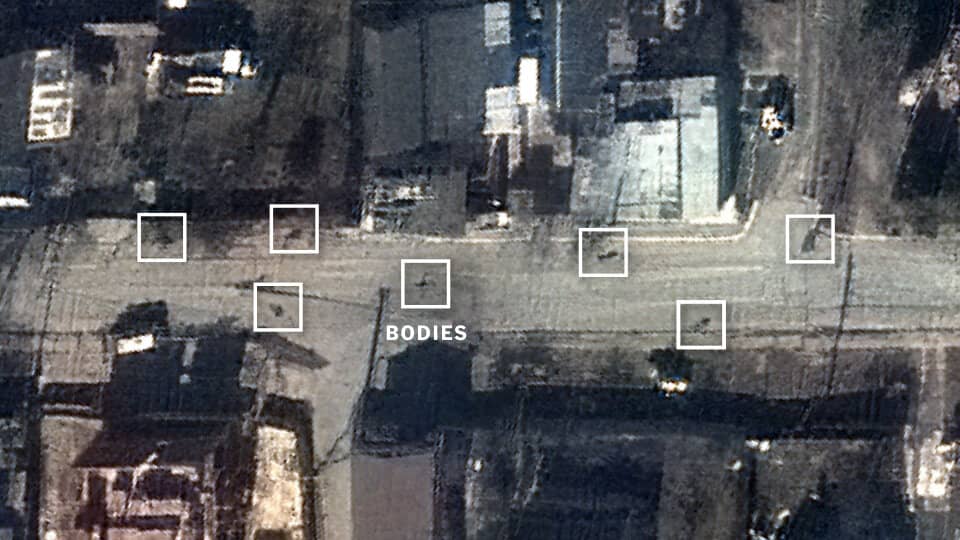In France, some minimize or deny Russian crimes. The New York Times published an investigation based on eight months work to understand and prove the role of a Russian unit in the Bucha massacre. The New York Times investigation relies on multiple sources: video-surveillance and drone images, witness accounts by inhabitants and telephone intercepts. The journalists were particularly interested in the 234th regiment of Pskov, involved in the massacres. Stand with Ukraine welcomes this important work, as for a considerable time the association has been denouncing the crimes committed by Russia and visited Bucha in April 2022.
The investigators established the following timeline:
Russia attacked Ukraine on the morning of February 24. On the 27th, Russian units entered Bucha, a small town in the suburbs of Kyiv, and were driven back by Ukrainian volunteers. On March 3, the Russians returned, and the nightmare began. As soon as they entered the town, the Russians began to loot everything they could. They openly boasted of this among themselves, as is proven by this exchange recorded by a surveillance camera. Rapidly, the situation became a spiral of violence. Several elements discovered by journalists prove massacres and rapes committed were not accidents: they were validated by the military hierarchy and fully integrated in the Russian strategy.
In the earliest days, a group of men was taken prisoner by the Russians. Conducted to a military base, they were summarily executed. Several cases of summary executions were recorded by the journalists: civilians on bicycles, a 68 year-old man who had gone out to buy food, a 14 year-old girl: innocent people, all murdered in cold-blood by the 234th regiment of Pskov. The bodies were abandoned in the middle of the street, and for many weeks civilians trapped in the town had to pass by the bodies of their executed neighbours, until the town was liberated by Ukraine.
The Russian soldiers of the 234th used the phones of several of their victims to make calls to Russia, intercepted by the Ukrainians, enabling the journalists to identify the authors of these murders. The massacres are indisputable, and only ceased with the liberation of the town in late March 2022. «Nearly all of Bucha is now a crime scene, giving the impression that death was everywhere», observed Human Rights Watch.
These were not the only Russian massacres, as in the following months mass graves were discovered at Irpin, Izyum, Kherson, Marioupol and many other locations: everything Putin comes into contact with becomes the scene of a crime against humanity. Despite all these proofs, some continue to deny the evidence, repeating word for word the Kremlin’s propaganda. This is why our association brought proceedings against Ségolène Royal last September.
Today, with Russia on the back step, Russia is using its remaining resources to target civilians with strikes against civilian infrastructure: power stations, refugee convoys. Let us never forget Putin’s victims. We cannot allow an entire people fighting for their survival and freedom to die.








